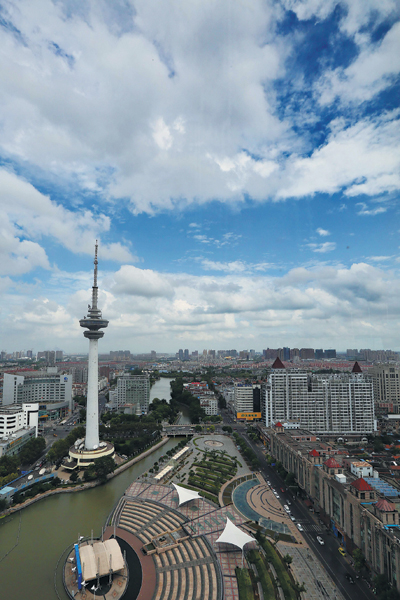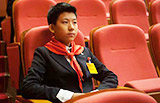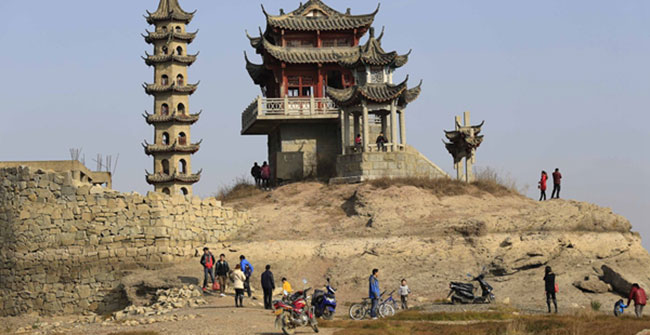Nantong granted local legislative powers at last
By Zhang Zhao, Zhu Wenjun and Miao Bei (China Daily) Updated: 2015-08-14 13:41City credits rising influence for greater autonomy after 20 years, Zhang Zhao, Zhu Wenjun and Miao Bei report.
Due to a recently revised law, Nantong has been granted local legislative powers, the Nantong People’s Congress announced at a news conference on Aug 2.
It has been nearly 20 years since the city’s first attempt to acquire legislative powers and it finally succeeded “primarily because of its continuously growing economy, expanding city scale and increasing regional influence over recent years”, said Li Xi, director of the legislation work committee in the Standing Committee of the Nantong People’s Congress, the city’s legislative body.
“In the past, Nantong did not have characteristic local laws, so it heavily depended on government policies, which had less stability and authority,” Li said. “In the future, we will have a better social management system made up of national laws, local laws, regulations and policies.”
The first local law in Nantong will cover the making of such legislative laws.
The standing committee of the people’s congress has started drafting the law, aiming to build a legislative system “dominated by the people’s congress, under the lead of the Party, with the government’s cooperation and all people’s participation”, Li said.

The draft will be submitted to the entire congress for approval at the end of this year.
Li said future local laws would focus on people’s livelihoods, of which residents are most concerned.
“The process of local legislation is one in which the general public express their opinions, have negotiations via legal means and procedures to reach consensus and develop a bond of sympathy across the city,” she said.
“To some extent, local legislation will serve as a weapon that defends people’s lawful rights and keeps social justice.”
The Standing Committee of the Nantong People’s Congress will begin seeking for legislative subjects for the coming year this month via mass media, including the Internet.
Li said every draft of local laws would be publicized via mass media and the website of the people’s congress for public review.
“Some people worry that local legislative powers will only help government agencies look after their interests, but there are restrictions and supervision at the State level to avoid this,” said Zhang Yanwu, deputy secretary-general of the Standing Committee of the Nantong People’s Congress.
“All local laws must be reviewed by the provincial people’s congress, who will judge their rationality, and then by the State Council,” Zhang explained. “In addition, any citizen can request the examination of the local laws.”
Before March, local legislative powers were granted to four municipalities, 22 provinces and their capitals, five autonomous regions and their capitals, four special economic zones and 18 relatively large cities.
The “relatively large city” is a concept linked with local legislative powers. A city is given such powers when it is recognized as a relatively large city, according to the former legislation law.
Nantong first applied to become a relatively large city in 1996, but no such status was granted after 1994.
The revised legislation law, approved by the National People’s Congress on March 15, mandates that all cities that have districts can apply for the powers. They can then make local laws on urban and rural management, environmental protection and historical and cultural heritage protection.
Four cities in Jiangsu province already had local legislative powers before the revised legislation law, and Nantong is one of six cities in the province to be granted such powers since.
Contact the writers through zhangzhao@chinadaily.com.cn
- Nation in bid to ward off the Zika virus
- Li drops in for a chat at historic mosque
- Prison time reduced after 11 show they regret crimes
- PLA vows support, contributions to military reform
- Hainan looks to boost visitor numbers
- Excessive emissions a big problem in 59 cities
- Tough rules will cut marine pollution
- PLA revamps command system
- Teen calls for educational reform at political meeting
- Huge investment fraud ring smashed






